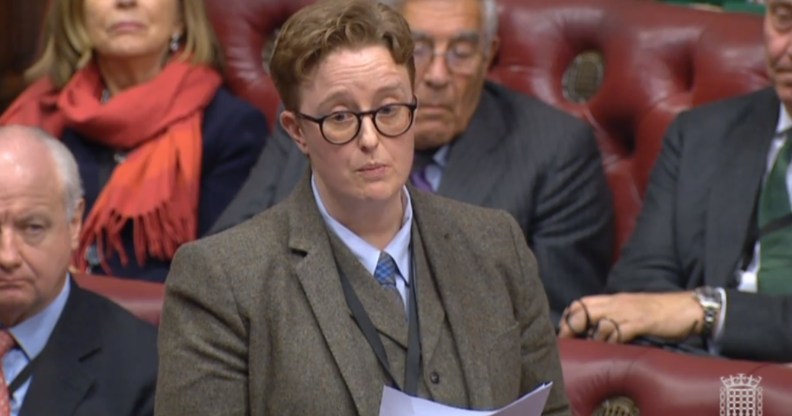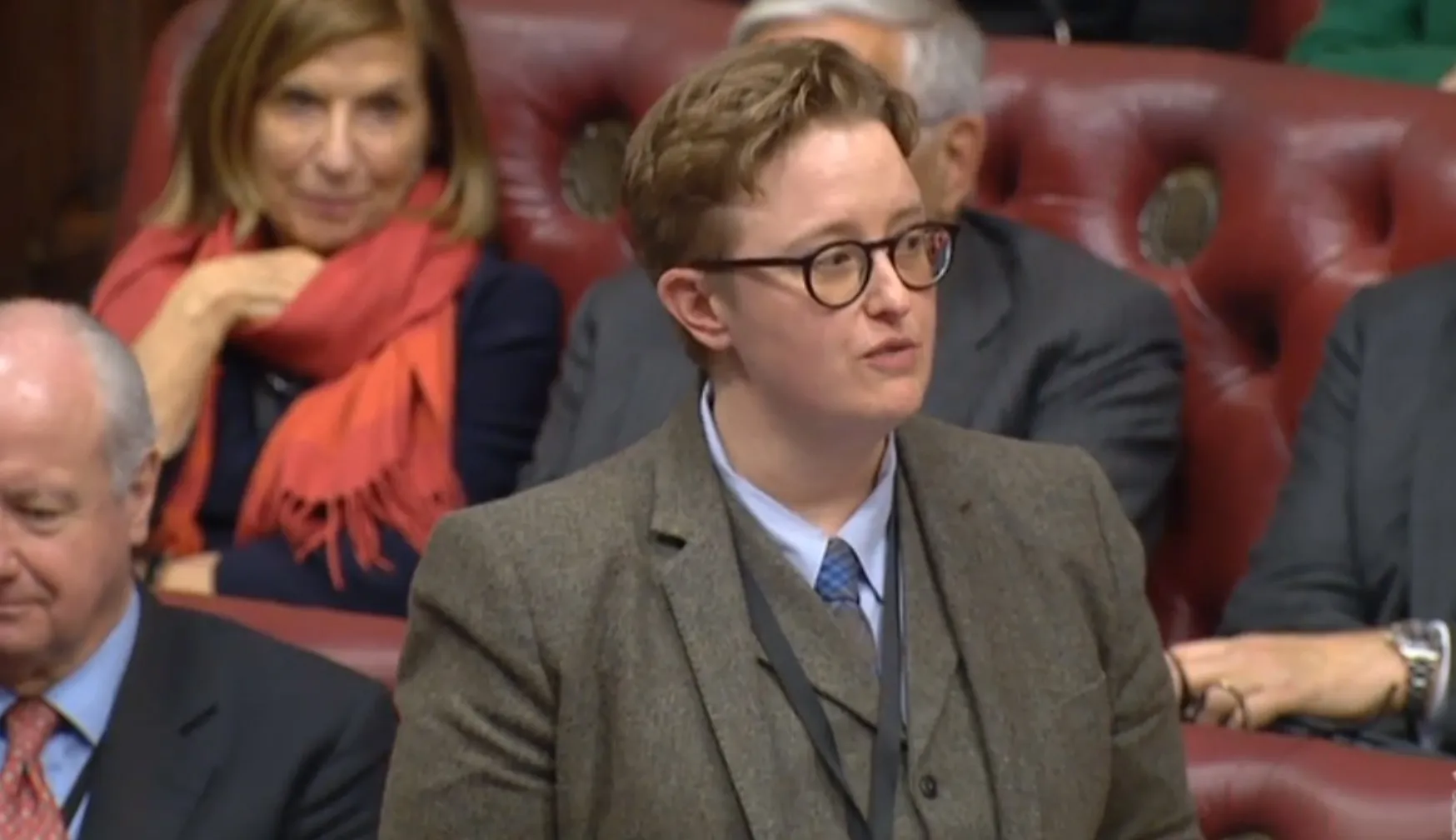Ruth Hunt, baroness of our hearts, calls for reforms to same-sex marriage in first speech to House of Lords

Former Stonewall CEO Baroness Hunt, Ruth Hunt, speaking in the House of Lords.
Former Stonewall boss Ruth Hunt has called for an end to the “legal distinction” between same-sex and mixed-sex marriage in her maiden speech to the House of Lords.
The former LGBT+ charity boss became Baroness Hunt of Bethnal Green after her exit from Stonewall last year.
She made her first speech to the House of Lords on Wednesday, during discussions of a bill to introduce ‘no fault’ divorces.
Addressing the issue, Hunt called on the government to back bolder reforms to end the legal distinction between same-sex marriages and mixed-sex marriages.
At the moment, marriages are currently governed by two separate laws – the Marriage Act 1949 and the Marriage (Same Sex Couples) Act 2013.
Hunt said that creating a unified legal framework would enable the government to scrap the ‘spousal veto’ for trans people.
Ruth Hunt calls for unified marriage law, end to spousal veto
The baroness said: “As a practising Christian, I understand how important it is to some people that marriage for same-sex couples is different from marriage to opposite-sex couples.
“I’m not sure if it remains necessary, however, to make the legal distinction between the two. The so called ‘quadruple lock’ that prevents the Church of England marrying same-sex couples could remain in place without the need to maintain two separate legal institutions.”
Explaining the “unintended consequence” for transgender people of retaining different models of marriage, she added: “When a couple is married and one person in that marriage transitions, their partner must consent to the change to change their marriage from an opposite-sex one to a same-sex one, or vice versa. If the partner refuses, the spouse cannot receive a gender recognition certificate.
“[A person] currently has the power to stop his spouse transitioning. This doesn’t seem fair or right. And his right to veto is because marriage for same-sex couples is a different institution to marriage for opposite-sex couples.
“Making divorce easier is common sense. It helps couples navigate what is often a distressing time more easily. I would ask government though, that we explore opportunities to simplify things further marriages marriage in the eyes of the law, and as a nation, we are proud that we extended it to same-sex couples.
“Anything we can do to help trans people and their families navigate the changes that are happening in their lives, that seems sensible too.”

Former Stonewall CEO Baroness Hunt, Ruth Hunt, speaking in the House of Lords
Baroness hails ‘no fault’ divorce reforms
Addressing the proposed ‘no fault’ divorce reforms, she said: ” What I would say is that as a young gay woman, neither civil partnership nor marriage was an option for me. When it therefore became an option, I suspect I and many others thought we should give it a go.
“Just because just because a person can enter a civil partnership or marriage, my lords doesn’t mean they necessarily should. I welcome an opportunity to simplify our institutions, and simplify how we use those institutions. Making it easier to divorce when a relationship is broken down is vital.”
She added: “In the spirit of celebrating relationships, my Lord, I want to take this opportunity to thank my partner Caroline.
“Caroline has always stood by my side. Sometimes I stand behind her and sometimes she stands behind me, but mainly we stand next to each other. I know, my Lord that I would not be here without her support and love.”
Stonewall co-founder Lord Cashman, who has sat in the Lords since 2014, welcomed his former colleague to Parliament.
He tweeted: “Brilliant maiden speech by @ruth_hunt Baroness Hunt of Bethnal Green. Brilliant. Watch it. Equality. The @UKHouseofLords is enriched by her.”
During her time at Stonewall, Hunt was widely praised for expanding the organisation’s remit to include transgender issues for the first time, as well as beginning work on global LGBT+ rights.

